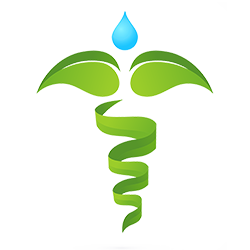Vitamin B12 is an important molecule in both the nervous system (for mental functioning) and in carbohydrate metabolism (the production of energy). A deficiency of this vitamin has been linked to fatigue, the inability to concentrate, changes in memory and even depression.
As we age our ability to digest foods high in B12 decreases. Our bodies’ ability to absorb B12 also diminishes. B12 requires a special component (intrinsic factor) in the small intestine to properly absorb this vitamin, which is a property unique to B12 as opposed to every other vitamin. Intrinsic factor is secreted by parietal cells in the stomach. Persons who are on H2 blockers and other reflux medications have a reduced ability to digest and process B12. Additionally, glucophages used in the treatment of blood sugar control can decrease B12 absorption. Aspirin has also been shown to decrease the absorption of B12 by as much as 75%.
B12 is found in beef, eggs and chicken so vegans and vegetarians in particular should consider regular supplementation. While a form of B12 is available in some kelps, studies show that it is not the kind used by the body. Studies also suggest that vegetarians get below the recommended amount in their diets.
Genetically, 85% of the population has a variant in the methylene tetrahydrofolate reductase (MTHFR) enzyme. This enzyme is crucial to methylation. Methylation is important, because it takes the nutrients and vitamins in our food to make the energy our bodies need to function properly. Estimates as high as 10% of the population have a variant in both alleles of this gene leading to MTHFR deficiency and a type of anemia. Having a variant on only one allele can reduce absorption of B12 by 48%.
B12 by intramuscular injection bypasses both the digestive and absorptive mechanisms so that this vitamin is more available. Injections have been shown to decrease symptoms of fatigue including those associated with Chronic Fatigue Syndrome and Fibromyalgia. It has been shown to improve symptoms associated with inflammatory changes including bursitis and sciatica. It has even been shown to decrease homocysteine levels which is an important bio-marker signaling increased risk of heart disease and stroke.
Who would benefit from a B12 shot?
Almost everyone can benefit from a B12 shot. Anyone over the age of 45, vegans, vegetarians, those with diabetes, chronic fatigue, GERD, depression, memory issues, and any digestive issues such as Crohn’s disease or IBS. B12 is a vitamin and the amount injected is not sufficient to be toxic. In fact, there are no known toxic symptoms with B12.
Injections are typically recommended monthly, but in certain cases can be beneficial when done more frequently.
See what B12 shots can do for you! Shots are available by appointment or Thursdays from 12-1pm.
Resources
Gaby, Alan R. Nutritional Medicine. Concord, N.H: Fritz Perlberg Publishing, 2011. Print.
“Vitamin B12.” Wikipedia. Wikimedia Foundation, n.d. Web. 18 Jan 2017.
Cardiovascular diseases and the MTHFR gene.” Folate, MTHFR Gene and Heart Health. N.p., n.d. Web. 18 Jan 2017.


